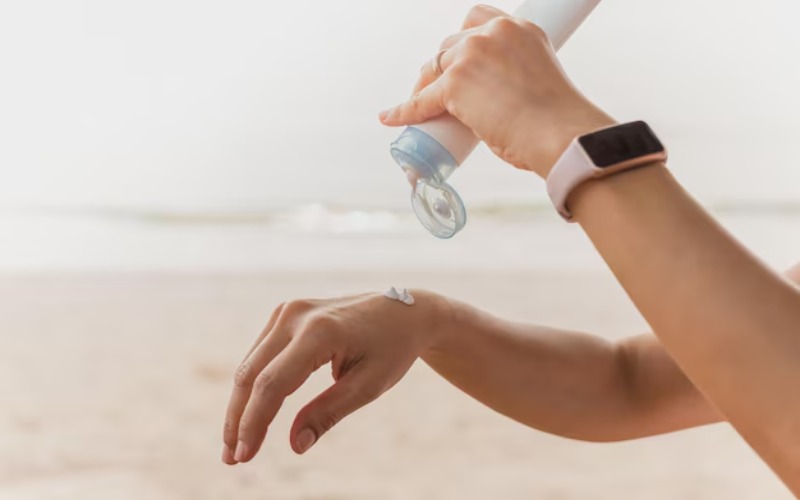Sunscreen has become a staple in skincare routines worldwide, touted as a frontline defense against skin cancer, premature aging, and harmful UV radiation. However, in recent years, concerns have surfaced about the safety of certain ingredients, prompting questions: Is sunscreen really bad for you? Let’s explore the science behind safety, the potential risks, and whether these concerns should outweigh its benefits.
The Importance of Sunscreen
Dermatologists and health organizations, including the American Academy of Dermatology (AAD) and the World Health Organization (WHO), have long advocated for sunscreen use. Why? Because exposure to ultraviolet (UV) radiation is one of the leading causes of skin cancer, which remains the most common type of cancer worldwide. UV exposure also contributes to premature skin aging, resulting in wrinkles, age spots, and loss of elasticity.
The main types of sunscreen—chemical and mineral—both aim to block or absorb these harmful rays. Chemical sunscreens (like oxybenzone and avobenzone) absorb UV radiation, while mineral sunscreens (such as zinc oxide and titanium dioxide) create a physical barrier that reflects UV rays. Both types protect the skin, but recently, chemical sunscreens have raised concerns about their safety for both humans and the environment.
Ingredient Safety Concerns: What Does the Research Say?
1. Oxybenzone and Hormone Disruption
One of the most controversial ingredients is oxybenzone, which some studies suggest may disrupt hormone function by mimicking estrogen in the body. Concerns grew after studies showed that oxybenzone could be absorbed into the bloodstream. However, while some animal studies have found hormonal effects, the concentration of oxybenzone used in these studies was significantly higher than what would typically be absorbed from sunscreen. The FDA and other health bodies, though cautious, have yet to confirm a definitive risk to humans at regular exposure levels.
2. Environmental Impact and Coral Reef Damage
Research has shown that certain chemical sunscreens, particularly oxybenzone, can harm coral reefs and marine ecosystems. For this reason, popular tourist destinations such as Hawaii, Key West, and parts of Mexico have banned sunscreens containing oxybenzone and octinoxate, aiming to protect coral reefs from bleaching. In response, many brands now offer “reef-safe” options without these chemicals.
3. Nanoparticles in Mineral Sunscreens
Mineral sunscreens are generally considered safer, but they are not without controversy. Some mineral-based sunscreens use nanoparticles (extremely tiny particles) of zinc oxide or titanium dioxide to make the product less visible on the skin. Although studies suggest nanoparticles don’t penetrate the skin deeply, some people worry they may pose a risk if inhaled, especially when in spray form. More research is needed to fully understand the impact, though current data suggests that nanoparticles in sunscreen are generally safe when applied to the skin (American Cancer Society).
The Benefits of Sunscreen: Proven Protection Against Cancer and Aging
Despite these concerns, science-backed benefits that should not be overlooked. The Skin Cancer Foundation reports that regular sunscreen use can lower the risk of melanoma—the deadliest form of skin cancer—by 50%. It also prevents photodamage, which not only preserves skin appearance but also slows down the visible signs of aging, including wrinkles, fine lines, and discoloration.
Choosing the Right Sunscreen: Tips for Safe and Effective Use
If concerns over ingredients are preventing you from using it, here are some ways to stay protected and avoid potential risks:
- Opt for Mineral-Based Sunscreens
Mineral sunscreens (zinc oxide and titanium dioxide) are generally safe for sensitive skin and are less likely to cause irritation. They’re also reef-safe, making them a great choice for environmentally-conscious consumers. - Look for “Reef-Safe” Labels
Choose products labeled as “reef-safe” if you’re planning on swimming in oceans, rivers, or lakes, or if you simply want a more eco-friendly product. - Avoid Spray Sunscreens with Nanoparticles
If you prefer a spray, be mindful of inhalation risks. Consider using creams or lotions instead, or spray onto your hands first before applying to your face. - Use Broad-Spectrum Protection with SPF 30 or Higher
Broad-spectrum sunscreens protect against both UVA and UVB rays, offering the most comprehensive protection. Look for SPF 30 or higher for effective coverage (AAD). - Reapply Regularly
Many people forget that sunscreen isn’t a one-and-done solution. It should be reapplied every two hours or immediately after swimming or sweating heavily.
Final Verdict: Is Sunscreen Bad for You?
The short answer? No, sunscreen isn’t bad for you when used as directed. While certain ingredients have sparked debates over health and environmental impacts, the benefits of regular sunscreen use far outweigh the risks. Without sunscreen, the dangers of UV radiation are far greater—skin cancer, accelerated aging, and severe skin damage. That said, consumers should feel empowered to make informed choices, opting for products that align with their health priorities and environmental values.
In the end, it remains a safe, accessible, and effective tool in preventing skin damage. The key is to choose the right type, use it properly, and stay informed as new research and products become available.











